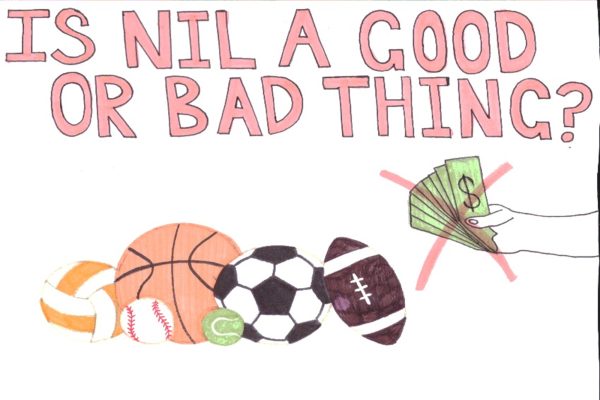“Cancel culture” de-platforms celebrities through social media
The concept of de-platforming an artist or celebrity due to any negative action that they have committed is not a new concept in and of itself. However, the term “cancel culture” and what it stands for has garnered somewhat of a cult following that young adults and teenagers alike both follow religiously. Before one can understand why it has taken the internet by storm, it’s important to understand the “cancel culture” phenomena.
When scrolling through apps such as Twitter or TikTok, it won’t take long before stumbling upon a post that intends to “cancel” a celebrity. Cancel, in this case, refers to the person who created the post, removing their support from that celebrity and encouraging others to do the same. As mentioned before, this isn’t anything new; celebrities were ostracized by ex-fans for their actions long before the birth of the internet.
According to an article from Insider.com, the term “cancel culture” began popping up a few years ago, mainly back in 2017 when people started rallying against celebrities such as Harvey Weinstein. Weinstein was once a popular movie producer, but when accusations of sexual assault came out during the #MeToo movement, people all over social media quickly banded together to boycott his movies and attempt to remove him from the industry.
Once claims about celebrities begin popping up around social media, these rumors spread like wildfires; just about anyone can see it, which wasn’t the case before. Getting the word out about toxic celebrities has become much, much easier.
The quick spread of information has created somewhat of a bandwagon effect; if someone sees a post that talks about canceling a celebrity, then they will immediately join in on the fun. While this immediate backlash may seem threatening to celebrities at first, these “canceling” campaigns last maybe a few days before the internet moves on to someone else. Celebrities often go unscathed, with their careers intact.
According to a 2019 article from CNN.com, Kevin Hart, a comedian known for his sometimes crass humor, was, at one point, canceled when homophobic tweets made by him years ago resurfaced. At the time, he was greatly criticized and lost a few job opportunities, but now he has completely bounced back and still has a flourishing career. This is because people often just join in on the ‘fun’ that is bashing someone online; they do not take any real actions to ensure problematic creators learn their behavior is not acceptable.
“Canceling” someone these says has really just become words, there is no real action behind it. People simply want to feel better about themselves and their negative actions, and so they’ll berate people online, without actually addressing the core issue of why certain behaviors and words are problematic. Again, there is no real action behind the millions of posts that have been created with the intent to “cancel” a celebrity. More than likely, people just want to feel like they’re doing something without actually doing anything to educate anyone.
This cut-throat mentality has quickly created a negative environment on most social media platforms. Constantly, children who are just learning the difference between right and wrong, and their moral compass, get thrown into “cancel culture” and focus all their time and energy on taking down not only celebrities, but their own peers as well. This creates a “holier than thou” ideology in impressionable kids, forcing them to look at situations in black and white, showing no shades of grey or the ability to make their own decisions.
It’s safe to say that most teens have contributed to “cancel culture” in one form or another, and it isn’t always a bad thing. There are times when “cancel culture” targets a celebrity who truly doesn’t deserve the platform they have created.
According to another article by Insider.com, once popular Youtube star Shane Dawson, received extreme backlash over his multiple counts of blackface. Not only were his actions egregious, but due to these actions, he was essentially deplatformed. He lost millions of subscribers and has basically vanished off of the internet. At this point, even if he did make another video as an attempt to come back, he would likely face more backlash. In this instance, people created true “cancel culture”, for the reasons it was originally intended.
Shane Dawson’s case is rare, however. As aforementioned, “canceling” often goes nowhere to begin with and celebrities continue on with their careers as if nothing happened. Some of these celebrities go so far as to make fun of their past controversies. It takes away from the severity of the words that were hurled at them and makes a joke out of the pain they may have felt as a result.
“Cancel culture” is certainly flawed, but it can be changed for the better. Instead of just making a few call out tweets about a celebrity, it’s much more effective to actively remove support from a celebrity if they have done something wrong. Or even make a post educating other people on why exactly what happened was wrong. Celebrities influence millions of people; their words are powerful, and potentially dangerous. If “cancel culture” were to make a change for the better, it could make a real impact.





